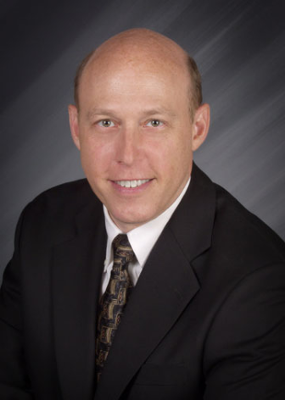STEM Career Profile: Dr. Phil Askenazy
April 21, 2016 -

A. Philip Askenazy, Registered Patent Agent with Peacock Myers P.C.
Q. What does your organization do?
A. We are the largest intellectual property law firm in the state. Some examples of intellectual property are patents, trademarks, copyrights, and trade secrets.
Q. What do you do on a daily basis?
A. I draft and prosecute patent applications. I meet with clients to better understand their needs and to discuss their particular situations. In addition I draft IP agreements such as license agreements and assignments.
Q. What best part of your job?
A. The best part of my job is being able to work with lots of different clients and a great diversity of inventions. We get a lot of people who have ideas, including individuals and companies. Many times their invention is not patentable, but some are amazing ideas.
Q. What degrees have you earned and from where?
A. A.B. in Physics from Harvard, and a Ph.D. from Caltech in Applied Physics
Q. When you were working towards your first degree, did you ever imagine that you would end up where you have?
A. No.
Q. What took you from your first degree to the point you are now? In other words, what was your career path?
A. That’s a very complicated question. Basically, everything has to do with timing, performing well, and making connections. Those three things are critical to changing one’s career. While completing my PhD, I quickly learned that I did not want to continue being a scientist. I started my own company in grad school and wanted to pursue something more related to business. I ended up in Albuquerque and was lucky to be here at the right time; STC@UNM, the patent licensing arm of UNM, was just being formed. I was networking and heard about it and got hired there. Patent licensing is a very interesting combination of business and science, and that’s how I got started working with patents. I was there for quite some time and spun out a company that I decided to start based on UNM technology. Unfortunately the first day we started the company was 9/11, so there is the timing thing again, but in a negative way. The funding we had arranged fell through, so the company eventually wasn’t viable. Through my work with STC, I had worked with Peacock Myers, since they handled a lot of UNM’s patents. I called up one of the partners and told them about my situation and asked if I could speak with their clients to see if they needed somebody with my ability. He told me they needed somebody since two attorneys had just left (again, good timing!), so why not work for them? That was such a shock; I had no inkling that I would work at a law firm, or they would even ask me. I’ve been here ever since.
Q. What were some of the significant challenges you encountered along the way?
A. It’s always challenging to learn a totally new field. You have to be willing to do work hard and find people to learn from. It’s also challenging to make connections in other fields, which is where networking comes in.
Q. How did you overcome these challenges?
A. By continuing to learn, and always taking opportunities to meet with people or volunteer for various activities.
Q. What would you say are the key milestones in your career pathway?
Q. What advice would you give to an undergraduate student in a STEM field?
A. If you know exactly what you want to do, you don’t really need all of this advice, although it would apply to you to a lesser extent. My advice is to network, talk to people, see what else is going on, try new things, don’t be afraid to say yes, and when you do say yes, do a really, really good job. Reputation matters and the world is a small place.
Q. Is there anything else you’d like to add that we haven’t addressed?
A. Be open to multiple possibilities. There is no limit to what you can do and you’d be very surprised at how you’d be able to contribute, even to non-STEM areas, just by virtue of what you’ve learned. Oftentimes the best jobs are not ever advertised. Never once have I held a job that I applied for through typical channels. Networking and reputation for me were, and are, key. Finally, don’t get a Ph.D. unless it’s critical for what you want to do; you may think it’s required, but it may not be. It can add to your success or credibility, but it is a large commitment.
Click HERE to know more about Peacock Myers Law Firm
Click HERE to know more about US Patents and Trademarks
